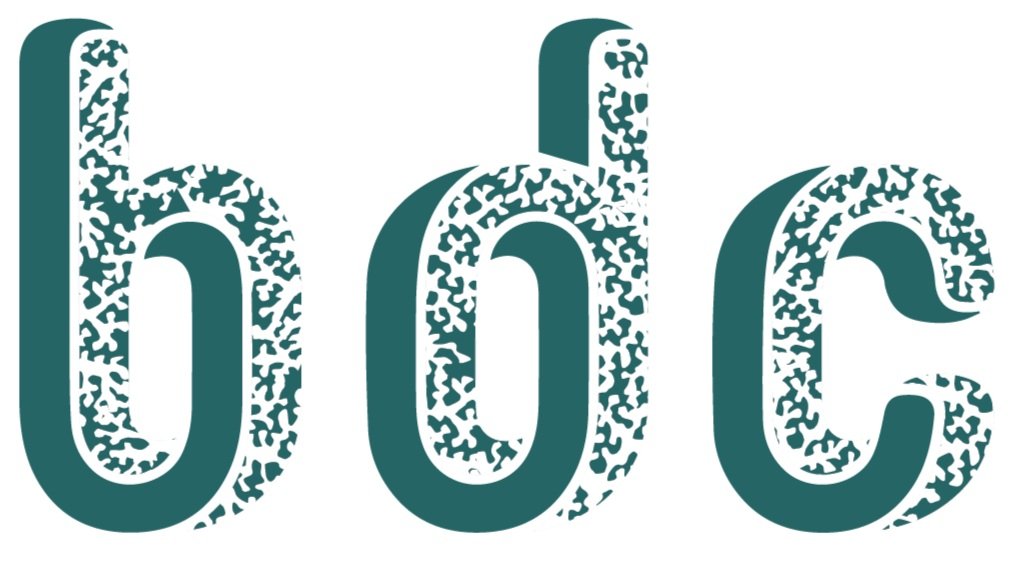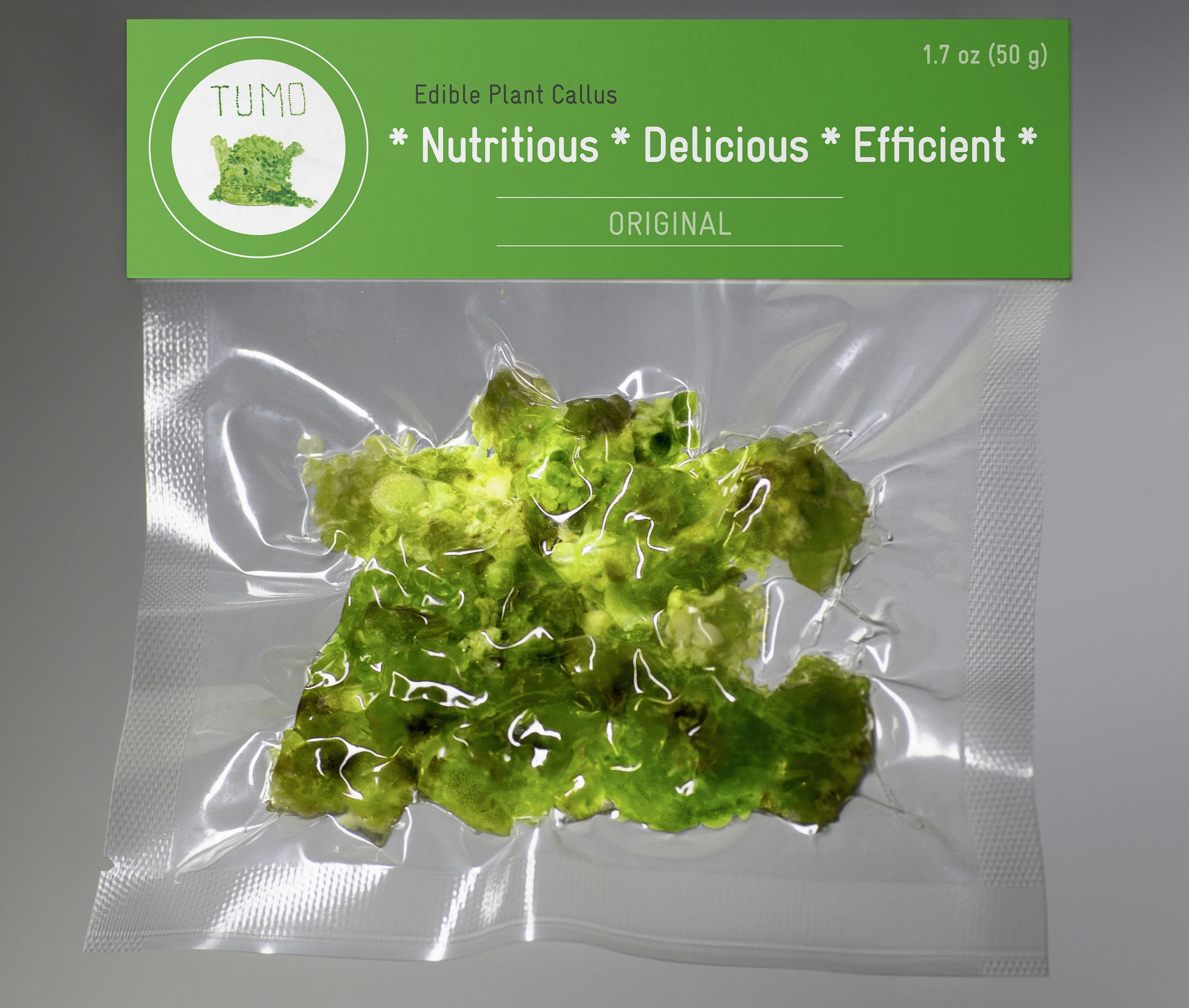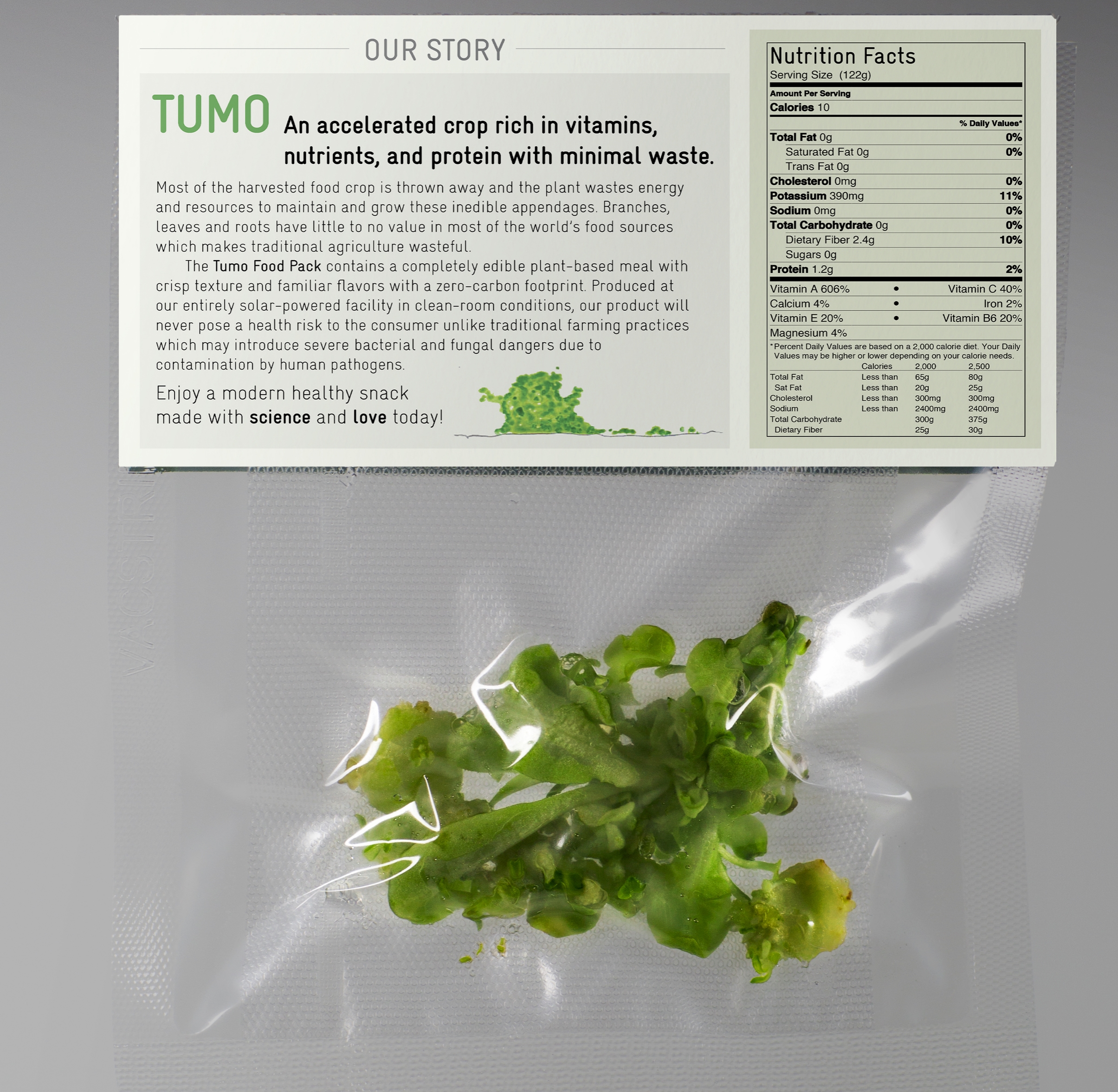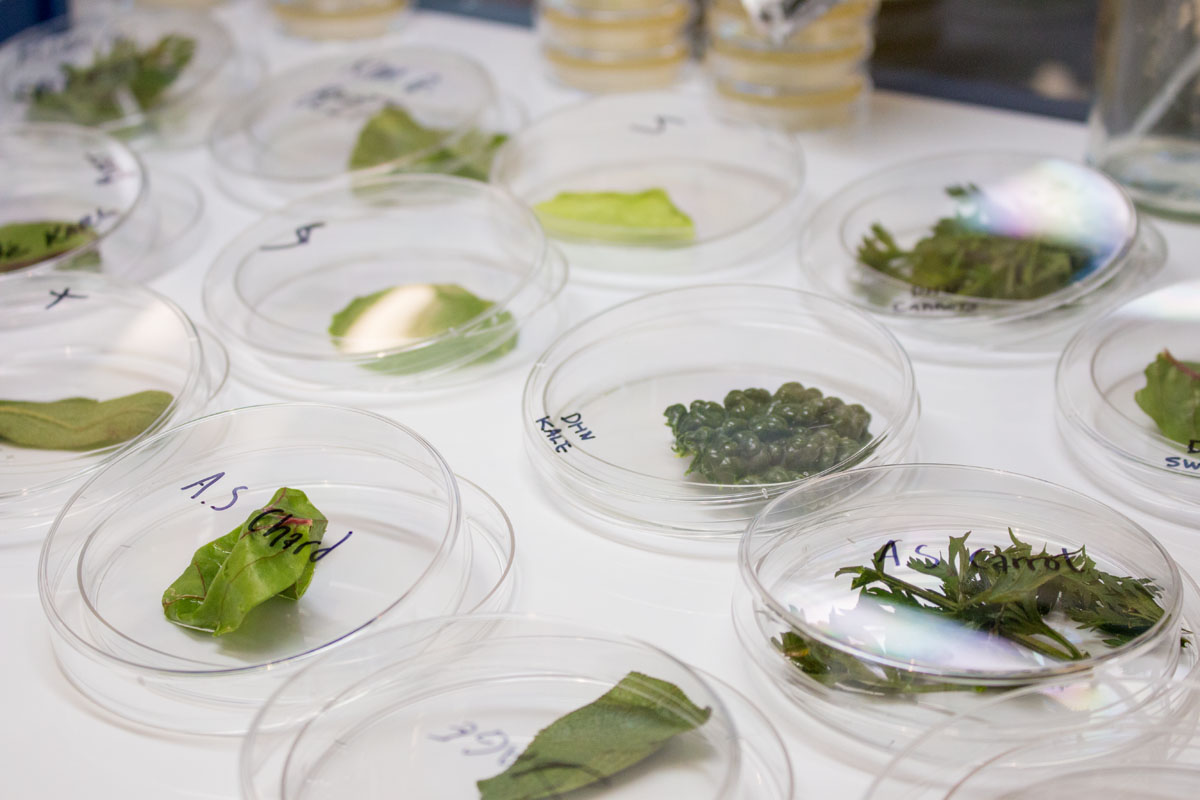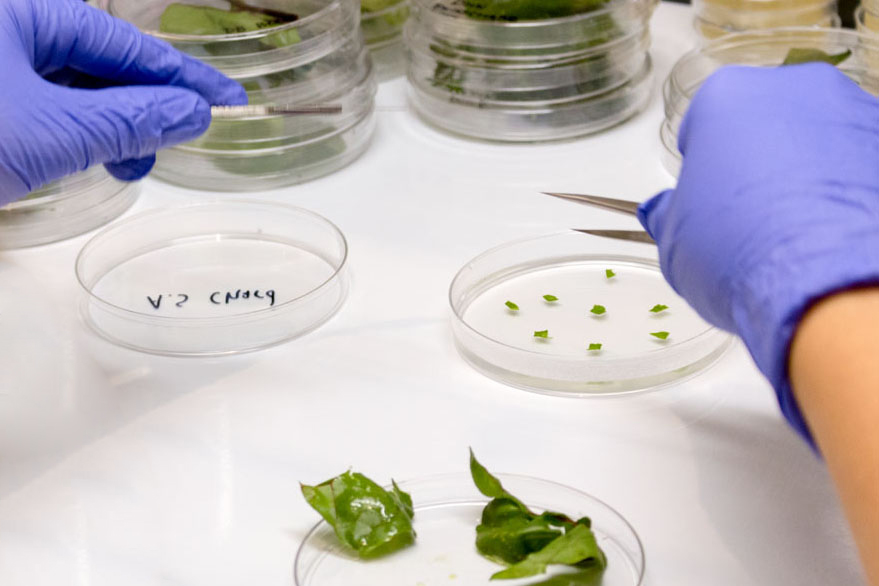School of
Visual Arts
Projects | 2016
MyoTomato
Leman Akpinar, Viktorea Benois, Sebastian Cocioba, Andrew Cziraki, David Hanlon, Marguerite Li, Bo Liu, Steph Mantis, Kirin Pino, Shannon Pollak, Gina Proenza, Tarah Rhoda, Victor Taboada, Darya Warner, John Wells
Plants are often deficient in the amounts of protein necessary to sustain the human diet because they are composed mainly of water and starches. To supplement nutrition, MyoTomato proposes bioengineering edible plants to produce myoglobin, a protein normally found in meat. As part of their lab work, the team inserted a DNA sequence naturally found in beef products into a tomato’s genome using agrobacteria.
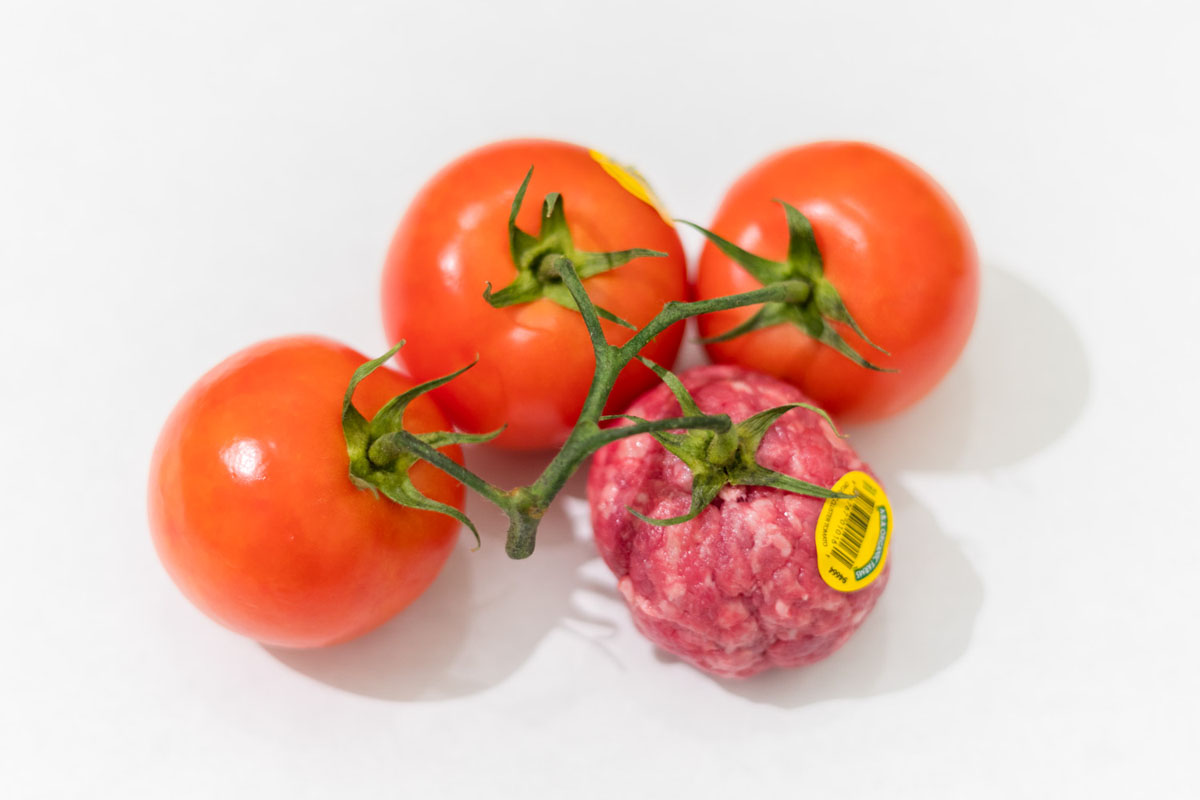
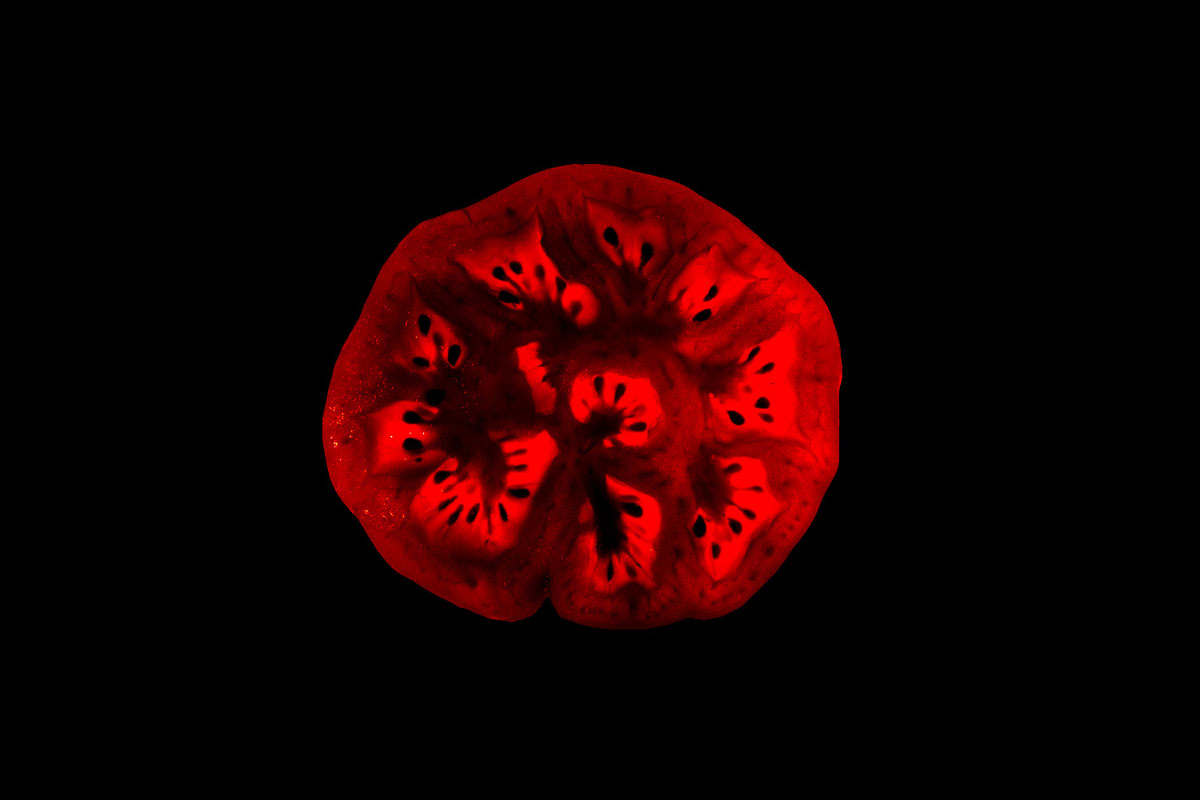
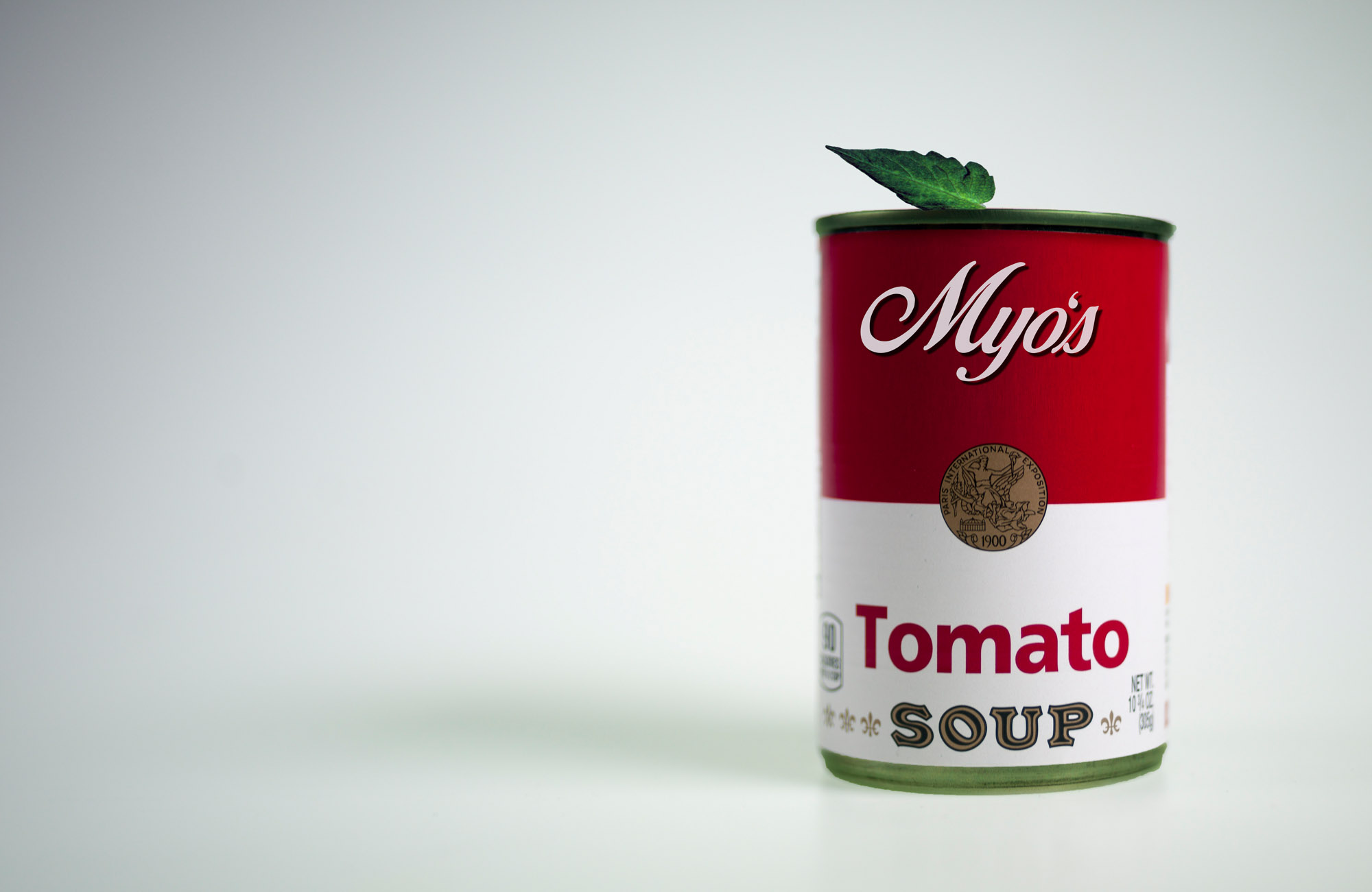
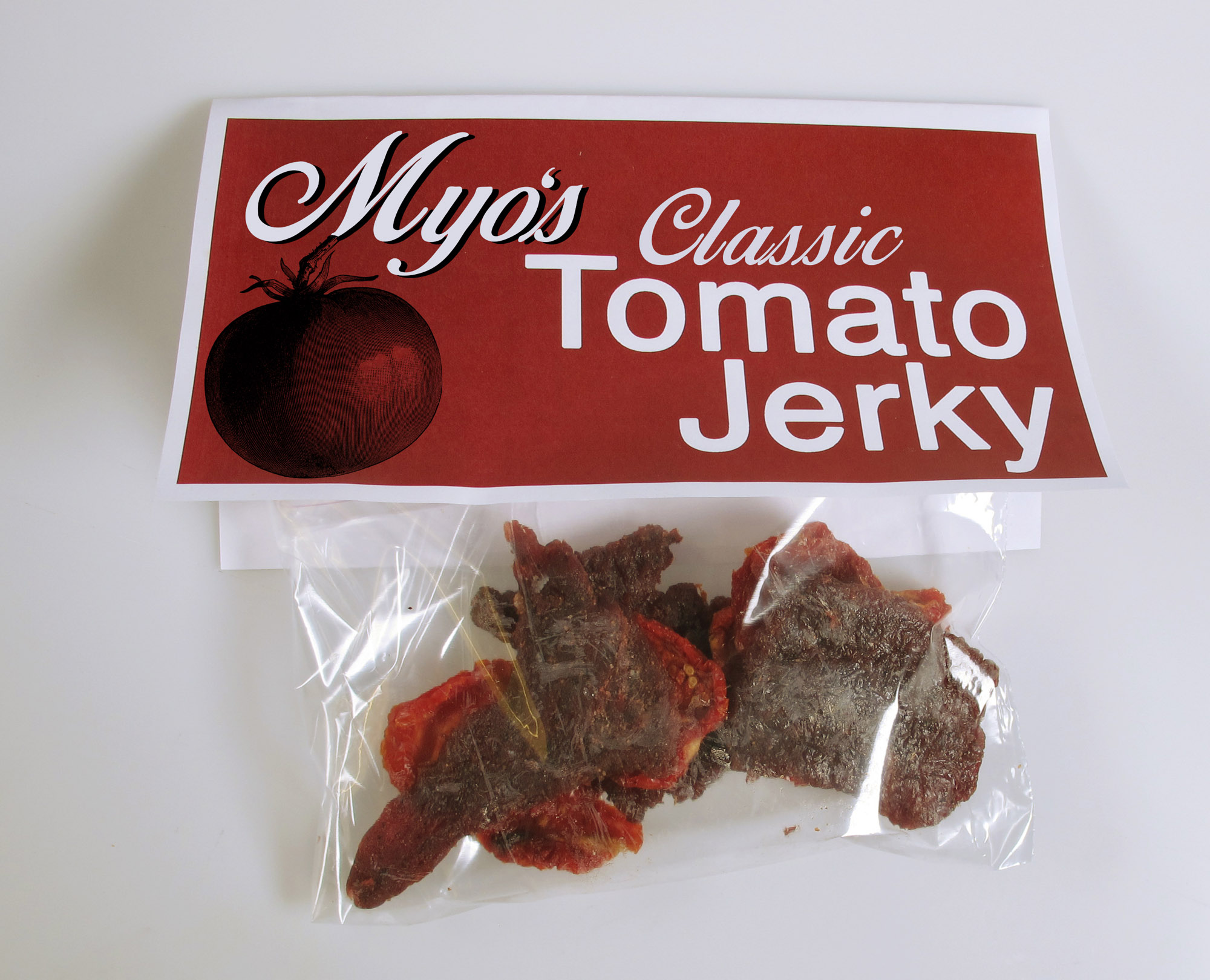
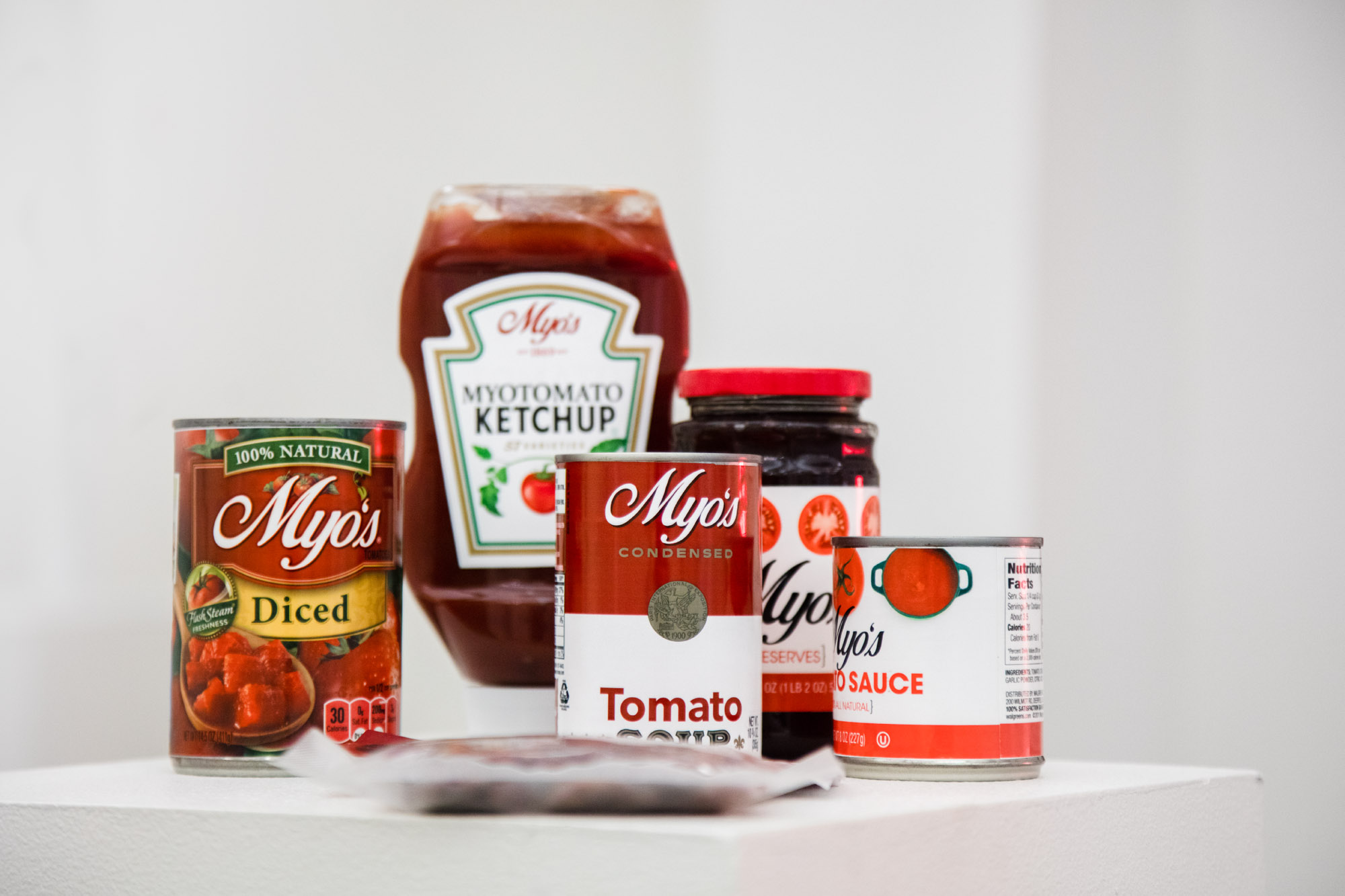
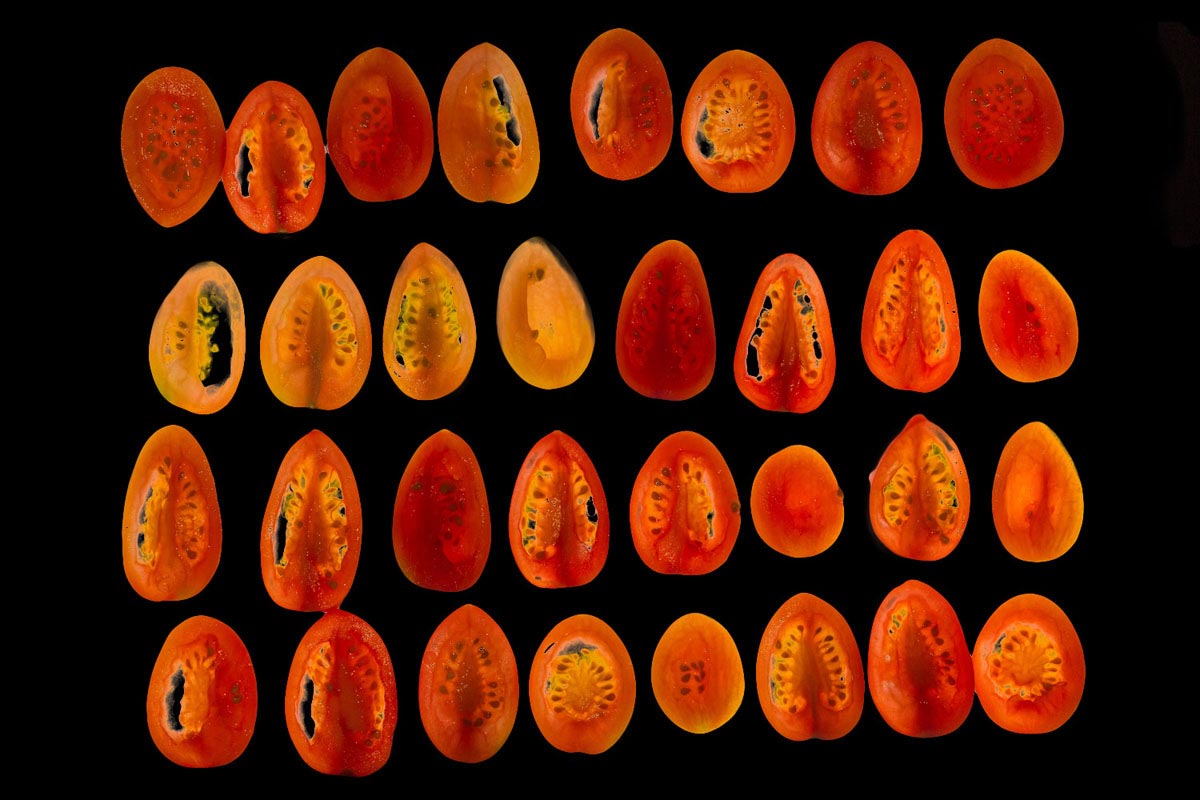
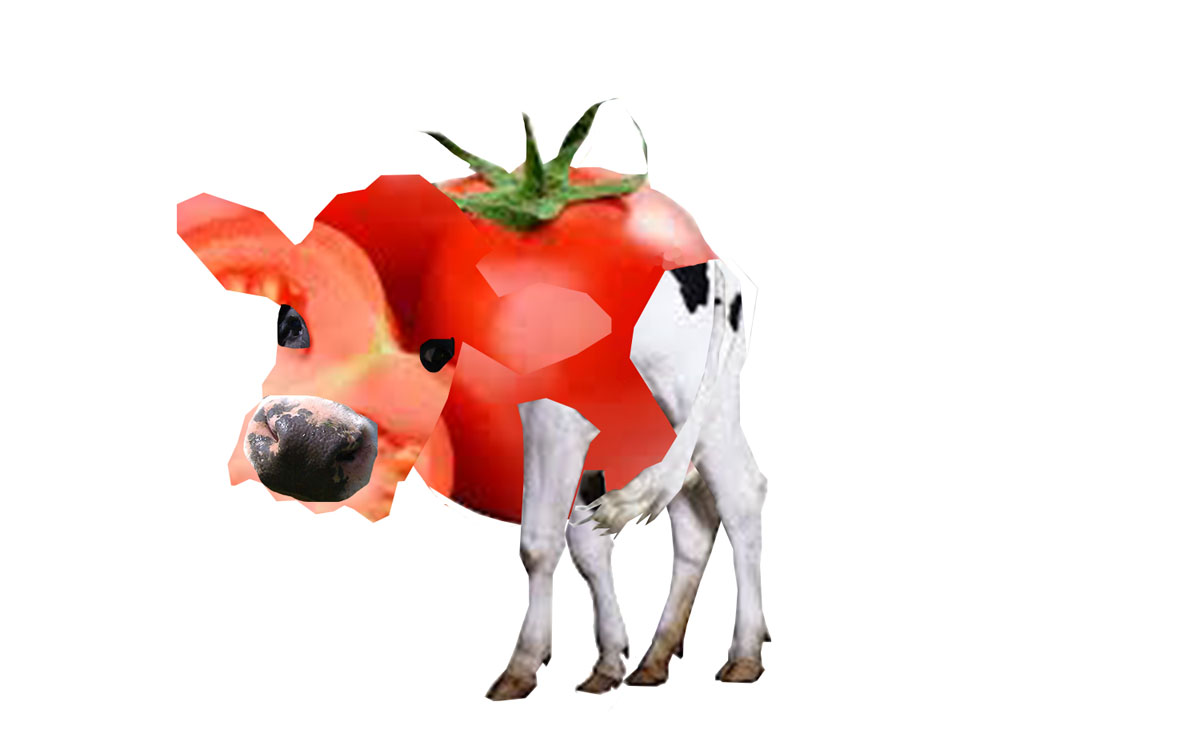
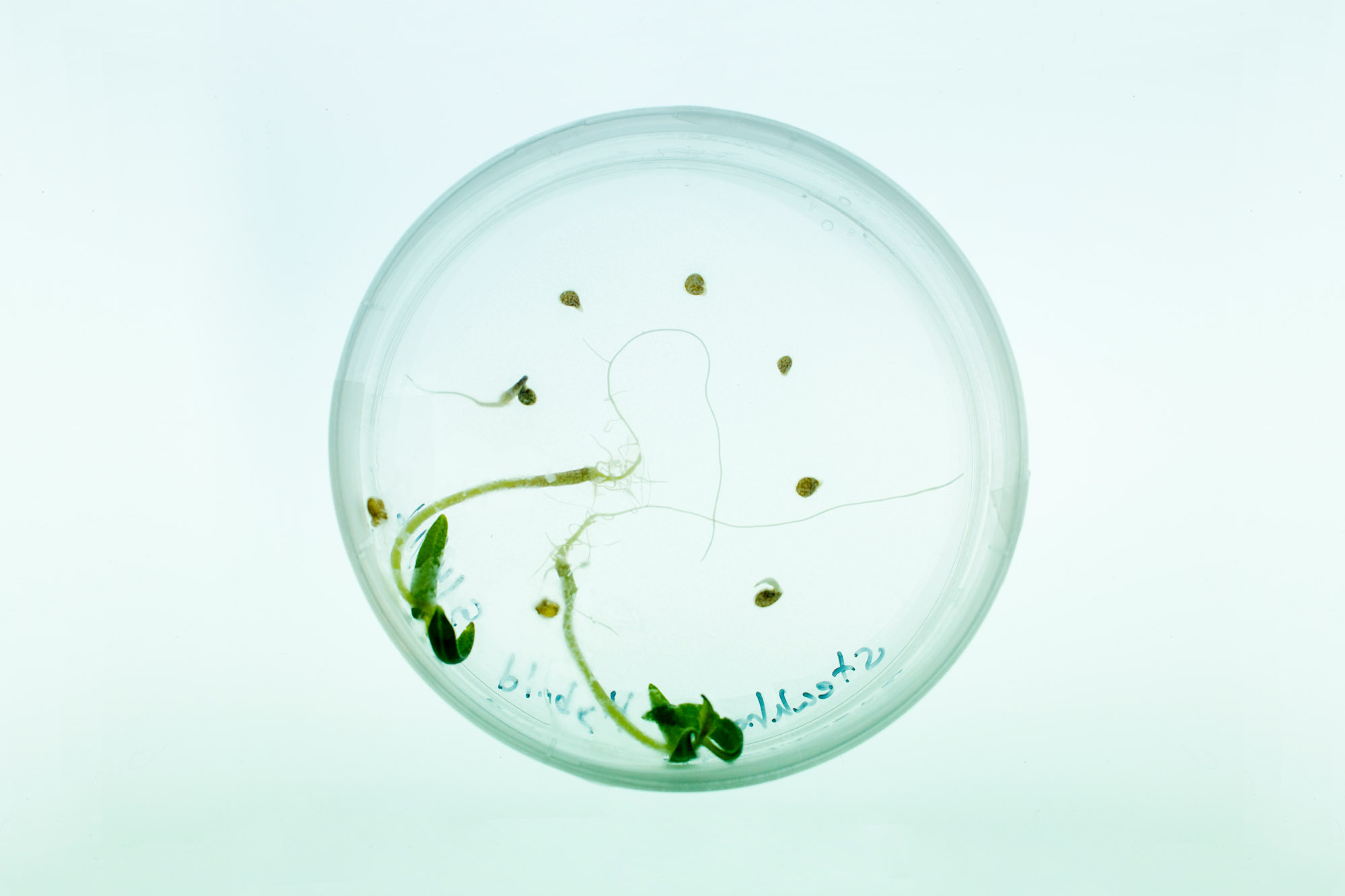
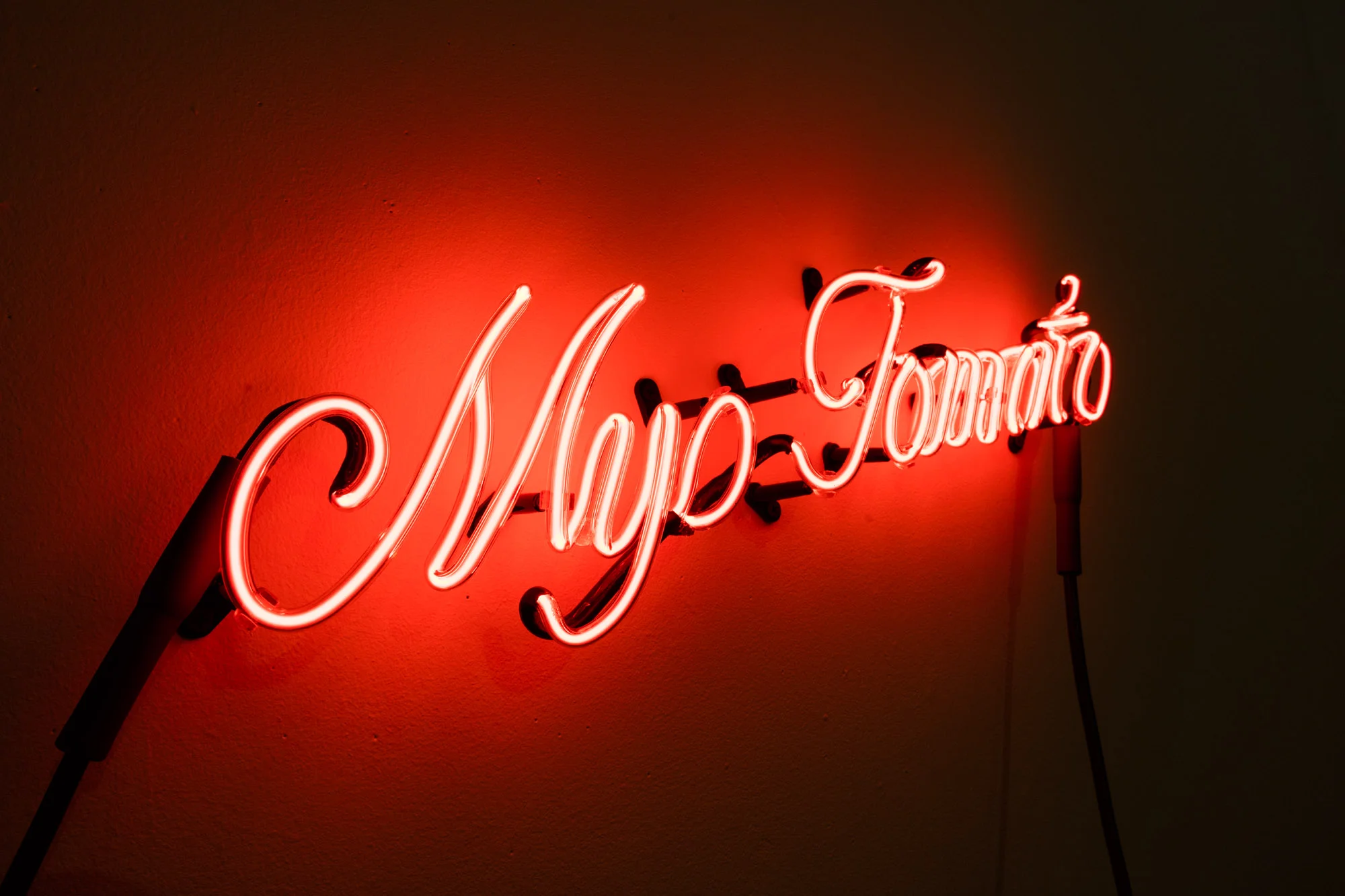
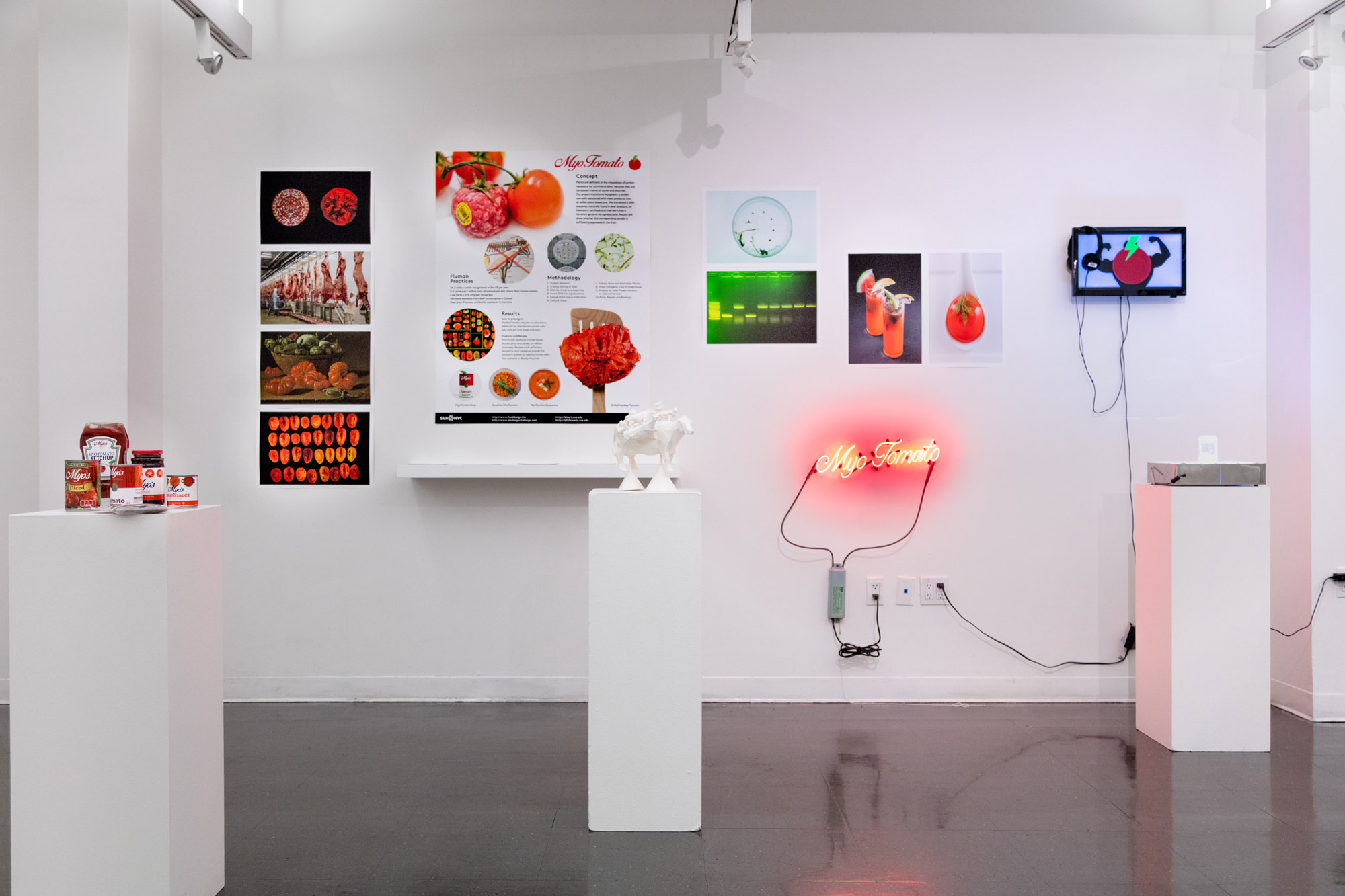
Tumo
While tumors in animals may be benign or malignant, in plants they may have alternative functions. Bioengineering tumors into plants can rapidly expand the plant's size and therefore possibilities for increased food production. The resulting biomass may not only edible but far more nutritious. Tumo would produce an accelerated crop rich in vitamins, nutrients, and proteins that has a crisp texture and familiar flavors.
INstructor
Suzanne Anker
Suzanne Anker is a visual artist and theorist working at the intersection of art and the biological sciences. She works in a variety of mediums ranging from digital sculpture and installation to large-scale photography to plants grown by LED lights. Her books include The Molecular Gaze: Art in the Genetic Age, co-authored with the late sociologist Dorothy Nelkin, published in 2004 by Cold Spring Harbor Laboratory Press, Visual Culture and Bioscience, co-published by University of Maryland and the National Academy of Sciences in Washington, D.C. Chairing SVA’s Fine Arts Department in NYC since 2005, Ms. Anker continues to interweave traditional and experimental media in her department’s new digital initiative and the SVA Bio Art Lab.
Lab Assistants
Sebastian Cocioba
Sebastian Cocioba is a biology undergrad, CEO & founder at New York Botanics, LLC, an ornamental plant genetic engineering start-up located in New York City. He is also an independent researcher for the education-oriented biotech non-profit, Binomica Labs. His research focuses on the nutritional requirements of life and the metabolic basis of speciation as well as the development of open source hardware for use in the molecular biology setting both formal and amateur.
Tarah Rhoda
Tarah Rhoda received her BFA in 2010 from the School of Visual Arts in New York City, and she also studied at the Gerrit Rietveld Academie in Amsterdam. She is based in NYC and manages the SVA BioArt lab, researching live materials and exploring the intersection of art, science and technology. Her current work investigates the body as a miniature world— one with landscapes, weather, and systems of self-maintenance that produce a spectrum of minerals and artifacts.
